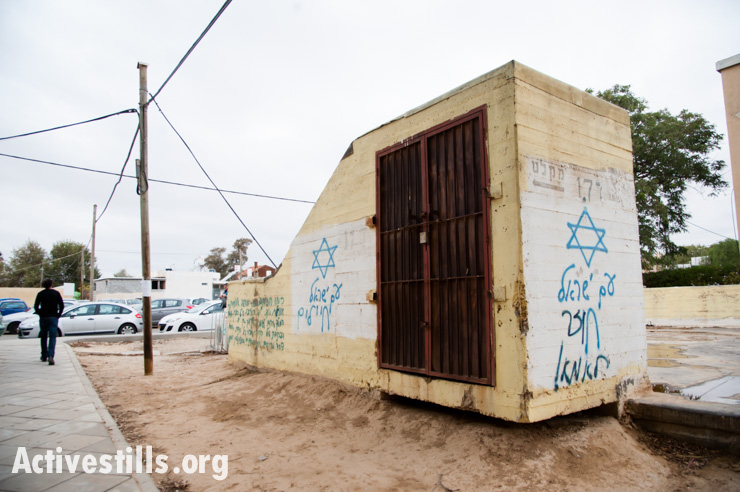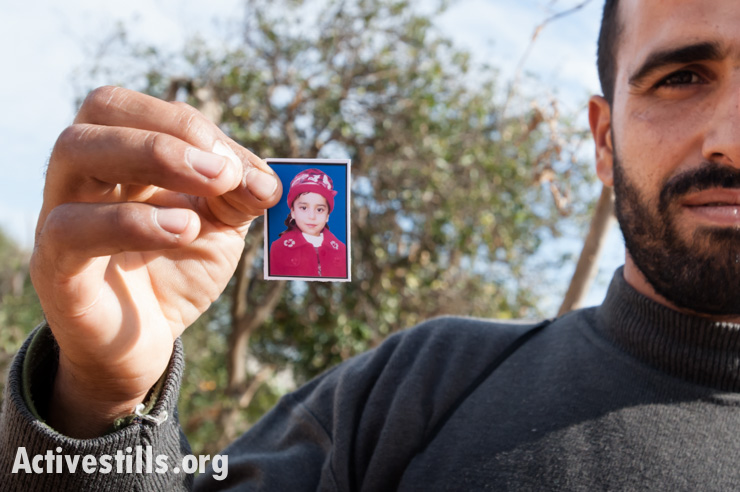Israel says that ‘no country in the world’ would agree to live under the threat of Gaza’s rockets, but ignores its own culpability in its 100-eyes-for-an eye spiral of violence.
Text and photos by: Ryan Rodrick Beiler/Activestills.org
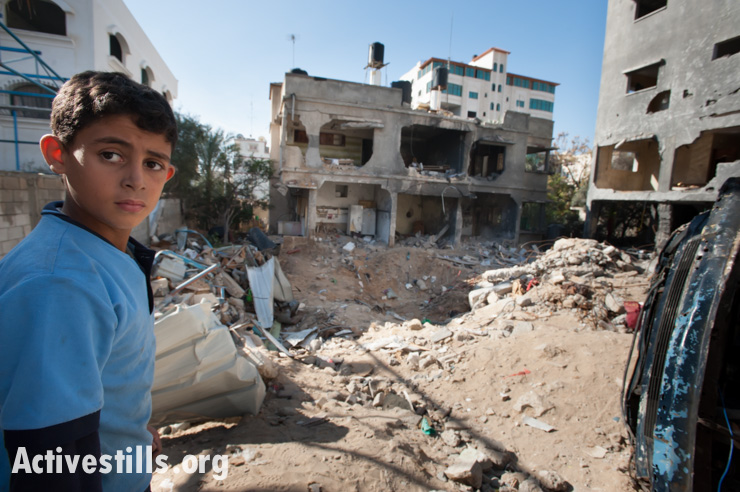
One of the common talking points used to defend Israel’s pummeling of Gaza is that “no country in the world” would agree to live under the threat of rockets. (Robert Fisk gives at least one historic example to the contrary.) But thin as the argument may be, it begs the question: Why single out Israel for criticism?
Here’s one guess: has any other self-declared democracy killed its enemies (mostly civilians) at rates of 1,400-to-9 in Operation Cast Lead, 176-to-6 in Operation Pillar of Defense or 163-and-counting-to-0 in the current offensive, Operation Protective Edge?
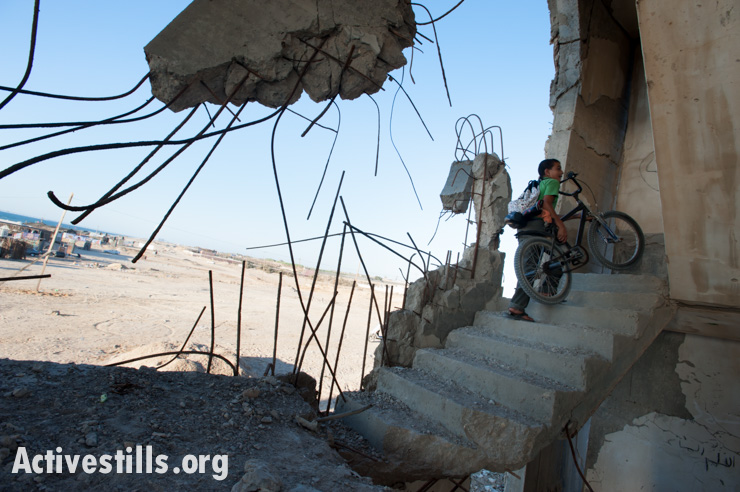
Another complaint of double standards that’s often leveled at advocates for Palestinian rights: “why don’t you go to Syria or Iraq where things are really bad?” This recommendation was offered to me by an Israeli soldier sent to quell a nonviolent demonstration in the West Bank. My answers to this dodge:
1) As a U.S. taxpayer, I have a special relationship with the country that receives the largest amount of my foreign aid. The soldier who asked me this question had “Property of U.S. Govt.” stamped on his rifle. The tear gas I inhaled at other demonstrations was also “Made in USA,” as are the planes dropping bombs on Gaza right now. So in one sense, I’m holding my own country accountable. More on that later.

2) Like many advocates for Palestinian rights, I’ve been active in human rights campaigns focused on many other countries, including Guatemala, Colombia, East Timor, Egypt, Iran, and Sudan. I’ve even traveled to a few of them. As a member of Amnesty International, I’ve written letters on behalf of political prisoners in more countries than I can remember, including some of Israel’s hostile neighbors. At home, I got arrested at the White House to protest the U.S. invasion of Iraq, marched for immigrant rights and opposed the death penalty. The point here is not to toot my activist horn, it’s to demonstrate that many of those who criticize Israel are consistent advocates for global human rights, including criticism of our home countries. We can walk and chew gum at the same time. So while Israel is special—right?—it’s not the only target of activism.
So whether I’m continuing my consistent concern for international human rights or succumbed to accusations of double-standards out-singling, after four years in occupied Palestine, here I am now in Iraq.
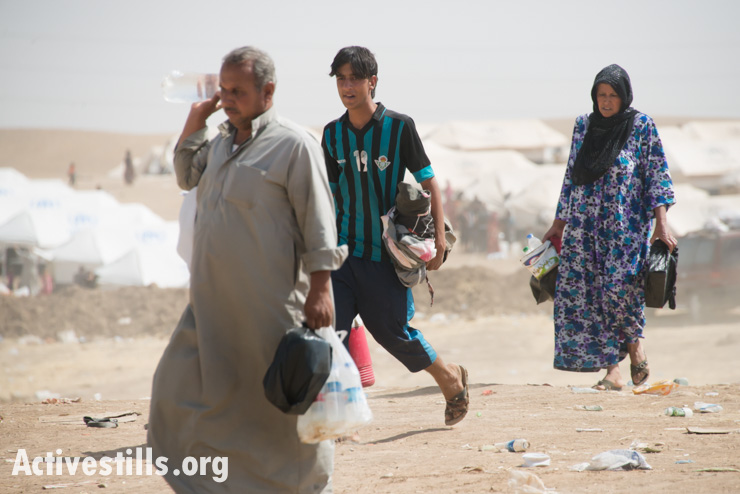
Interestingly, while skyping with friends in Gaza to see how they were holding up, they expressed concern for my safety. I said it’s a little like being in East Jerusalem when there’s war in Gaza. There might be some risk, but even though the fighting is only 90 kilometers away, it’s quite safe where I am in Erbil.
A big difference, I added, is that people in Mosul, for example, can leave their city if it becomes too dangerous. They’re not locked in a big jail like Gaza, so that when the Israeli military drops leaflets telling 100,000 Gaza residents to flee, it’s something of a sick joke. To where do you flee when all of your borders are closed and you live in one of the most densely populated places on earth?
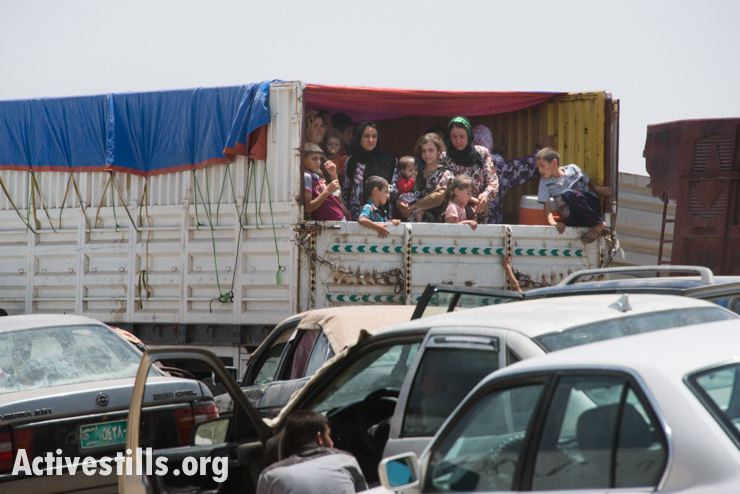
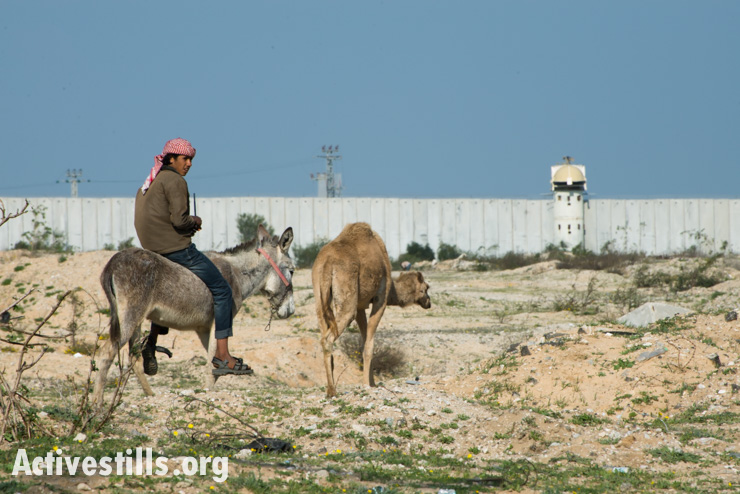
Not to minimize the danger in Iraq. The militants here make Hamas and Islamic Jihad look like J Street. The casualties from Gaza rocket fire can’t hold a Roman candle to the death toll in Iraq. To even approach that magnitude, you’d need to compare a far greater killer of Israelis, like … traffic accidents. If that comparison seems inappropriate, tell it to Amos Harel, who in a 2005 Haaretz article used it contextualize suicide bombings. That year, car crashes killed 10 times more Israelis — 450 — than did terrorist attacks. Or just this week, Max Fisher in the Christian Science Monitor, who cites zero Israeli deaths so far in this operation while noting 303 traffic fatalities last year.
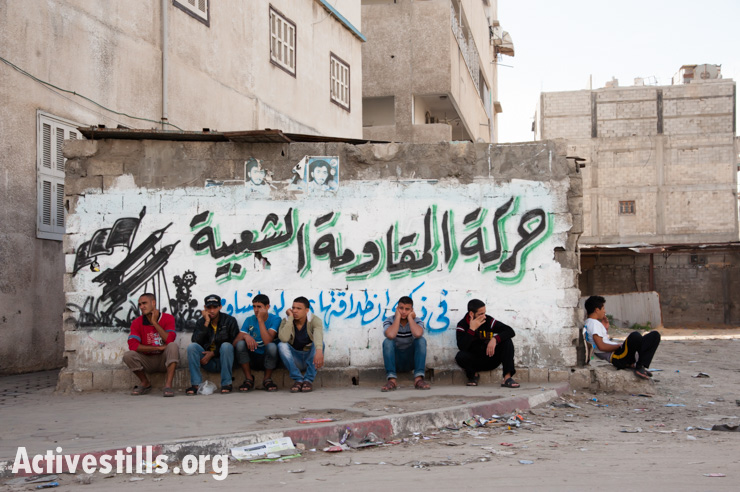

I’m also not trying to minimize the danger of Gaza’s rockets. They’ve killed in the past, and people in Tel Aviv and elsewhere—including many Israeli friends who are actively opposing the military strikes — live in fear and uncertainty under the sirens and booms. That rockets have also fallen in the West Bank only further demonstrates the criminal stupidity of this tactic. But have Israelis noticed that far more rockets are fired at them when their military attacks Gaza? The issue is not whether Israel should protect its people — or whether Palestinians should resist Israeli oppression — but how.
In principle, most countries do agree to live with certain levels of threat — even lethal threats — without violently and collectively punishing entire communities. See the U.S. response to mass shootings. On second thought, see the Australian response to mass shootings. Though Israel is right that no country would ignore attacks on its citizens, there are effective and rational alternatives to massive violence.
Even the biblical principle of an “eye for an eye” would be preferable to Israel’s current 100-eyes-for-an-eye bloodshed. But since every other escalation has ended with a ceasefire, showing that Israel is willing to negotiate with Hamas after killing scores of Palestinians, why not before? As Yitzak Rabin famously said, “You negotiate with your enemies, not with your friends.” Israeli control over Palestinian lives and land remains the root of this conflict. Yet Israel broke off peace talks over Hamas-Fatah reconciliation.
Since the tactic was first used in 2004, rockets from Gaza have killed 32 Israelis according to B’Tselem. In the same period, Israeli forces have killed more than 3,700 Palestinians in Gaza, about half of them noncombatant civilians, and that number is growing every day. Neither side has accomplished anything but suffering for the most vulnerable. But only one side is killing men, women and children in a spiral of violence that no country in the world should tolerate.


